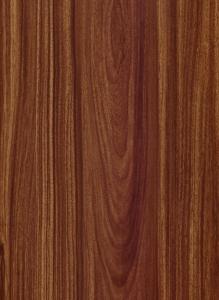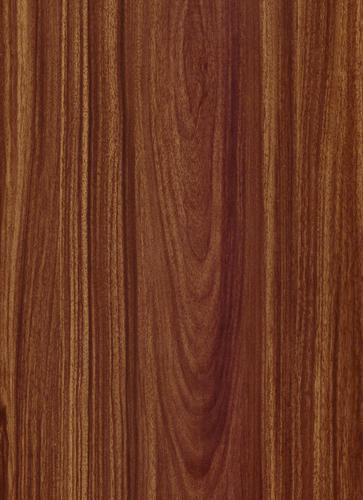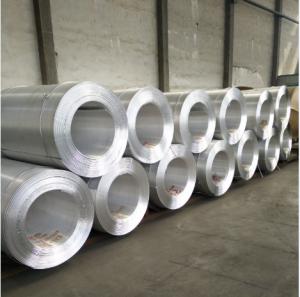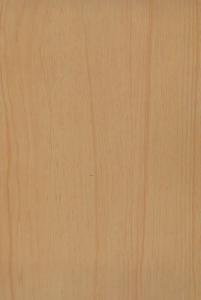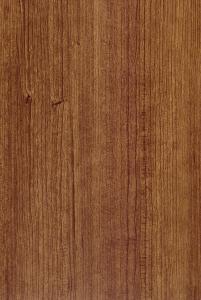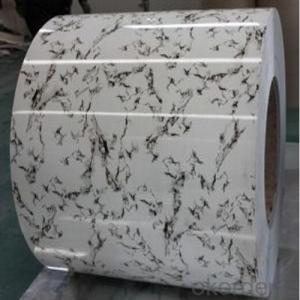1 2 in Aluminum Coil with Wood Grain Coating
OKorder Service Pledge
OKorder Financial Service
You Might Also Like
Aluminium coated sheetand coil choose aluminium sheet coil as raw material, after de-ester, cleaning,passivation layer processing, and then painting on this basis, the paint areprovided by famous international companies like PPG and Valspar from UnitedStates or Becker from Sweden, represent the most advanced level in the world.After the test of exposure by natural light in Florida, the quality assurance is more than morethan 20 years. As poor performance of color coated steel corrosion, rust,yellow rust after a large amount of the deficiency of serious impact on thebuilding's overall appearance. However, because of the advantages of rawmaterials, Aluminium coated coil have a high strength, corrosion resistance,high weather resistance, can be used recycle, save energy and protect theenvironment and other characteristics. Not only have the same strength with colorcoated steel, but also overcome the shortage of color coated steel. So, the Aluminiumcoated coil has been widely used as roofing and ceiling decorative envelopesystem board in modern constructions like large factories, exhibition halls,stadiums, airports, train station hospital and so on. We can choose Aluminiumcoated coil in different thickness and color, by cutting, pressing, punching,bending and other follow-up molding process for large span, the larger theoverall roofing, wall decorative panels used in construction; or cut them intosmall panels by bending, stamping mold or other processing for indoordecorative roofing plate; we can also composite them with polyurethane foam oraluminium honeycomb for energy-saving decorative wall plates.
Alloy | 1050,1060,1100,3003,3004,3005,3104,3105,5052,5005,8011 |
Temper | O,H42,H44,H46,H48 |
Thickness (mm) | 0.25mm-1.5mm for aluminium coated coil; 1.50mm-4.0mm for aluminium coated sheet. |
Width (mm) | 100mm to 2000mm |
Length (mm) | 800mm to 6000mm for sheet |
- Q: Are aluminum coils suitable for pharmaceutical packaging?
- Yes, aluminum coils are suitable for pharmaceutical packaging. Aluminum is a widely used material in the pharmaceutical industry due to its excellent barrier properties, durability, and flexibility. It provides effective protection against moisture, light, oxygen, and other external factors that can degrade the quality and stability of pharmaceutical products. Aluminum coils can be easily formed into various shapes and sizes, making them ideal for packaging different types of pharmaceutical products such as tablets, capsules, and ampoules. The ability to customize the packaging according to specific requirements ensures that the products are properly sealed and protected during storage and transportation. Furthermore, aluminum is non-toxic and chemically inert, meaning it does not react with the contents of the packaging. This is crucial for pharmaceutical products as it ensures the integrity and safety of the medication. Aluminum coils also have excellent heat conductivity, making them suitable for heat-sealing processes commonly used in pharmaceutical packaging. In addition to its functional properties, aluminum is a sustainable and environmentally friendly choice for pharmaceutical packaging. It is easily recyclable, reducing the environmental impact and promoting sustainability in the healthcare industry. Overall, aluminum coils are highly suitable for pharmaceutical packaging due to their barrier properties, flexibility, customization options, non-reactivity, heat conductivity, and sustainability.
- Q: What is an aluminum coil?
- An aluminum coil is a continuous strip or sheet of aluminum that is wound into a coil shape. It is typically used in various industries for its lightweight, corrosion-resistant, and malleable properties. The coil is produced through a process called continuous casting and rolling, where molten aluminum is poured into a caster and then rolled between large metal rollers to achieve the desired thickness and shape. Aluminum coils are commonly used in the manufacturing of automotive parts, building materials, electrical equipment, and packaging materials. They can be further processed into different forms, such as sheets, plates, or foils, depending on the specific application requirements.
- Q: What is the maximum yield strength of aluminum coils?
- The maximum yield strength of aluminum coils can vary depending on the specific alloy and temper, but it typically ranges between 15,000 and 50,000 pounds per square inch (psi).
- Q: Are aluminum coils suitable for high-reflective applications?
- Yes, aluminum coils are highly suitable for high-reflective applications. Aluminum has excellent reflective properties, making it ideal for a wide range of applications requiring high reflectivity, such as solar panels, LED lighting, and reflective coatings. Additionally, aluminum is lightweight, durable, and corrosion-resistant, making it a preferred choice for various industries.
- Q: What are the common surface defects or issues in aluminum coils?
- Some common surface defects or issues in aluminum coils include scratches, dents, stains, oxidation, and uneven coatings.
- Q: What are the different types of surface treatments for corrosion resistance?
- Various materials can benefit from different surface treatments to enhance their resistance to corrosion. These treatments can be grouped into mechanical, chemical, and electrochemical methods. 1. To improve corrosion resistance, mechanical surface treatments involve physically altering or modifying the material's surface. Shot peening, sandblasting, and polishing are common methods. Shot peening induces compressive stresses by bombarding the material with small metal pellets, preventing corrosion. Sandblasting removes existing corrosion and creates a clean, smooth surface by blasting it with abrasive particles. Polishing, using abrasives, creates a smooth, reflective surface that reduces the chances of corrosion initiation. 2. Chemical surface treatments involve applying a chemical solution or coating to create a protective layer against corrosion. Chromating, for example, applies a chromate conversion coating that acts as a barrier against corrosion and improves adhesion for subsequent paint or coating layers. Anodizing, commonly used for aluminum surfaces, creates a thick oxide layer that enhances corrosion resistance and can provide decorative finishes. Other chemical treatments, like phosphating, passivation, and galvanizing, use specific chemical solutions or coatings to protect against corrosion. 3. Electrochemical surface treatments utilize electrochemistry principles to create a protective layer. Electroplating involves depositing a thin layer of a more corrosion-resistant material, such as zinc, nickel, or chromium, onto the base material's surface. Anodic protection connects a sacrificial anode to the material, causing the anode to corrode instead of the material itself. This method is commonly used for underground structures and pipelines. The choice of surface treatment for corrosion resistance depends on factors like the material, intended application, and desired level of protection. It is crucial to consider factors like cost, environmental impact, and performance requirements when selecting the appropriate treatment, as each method has its advantages and limitations.
- Q: What are the electrical conductivity properties of aluminum coils?
- Aluminum coils have excellent electrical conductivity properties. Aluminum is a highly conductive metal, second only to copper. It possesses low resistivity and can effectively carry electrical current, making it a preferred choice for various electrical applications such as power transmission, wiring, and electrical coil windings.
- Q: This question asks for a comparison between standard and non-standard welding wires used with aluminum coils, highlighting their differences.
- <p>Standard welding wire for aluminum coils is designed to meet specific industry standards, ensuring consistent quality and performance. It is made from high-quality aluminum alloys and is tested for properties like tensile strength, ductility, and resistance to corrosion. Non-standard welding wire, on the other hand, may not adhere to these strict specifications and could be made from lower-grade materials. This can result in inconsistent weld quality, weaker joints, and a higher risk of failure. Non-standard wire may also not provide the same level of corrosion resistance, which is critical for aluminum welding applications.</p>
- Q: Some manufactures (Kia, Hundai) use Iron blockswhileOther manufactures (Nissan, Chevy, ect.) use Aluminum blocks*****Is the point of using Iron blocks to increase long-term durability or temperature endurance??ORIs the use of Iron blocks simply an older, simpler technology (as compared to using Aluminum), the manufacture of which costs less money??And you would think that Aluminum weight savings would transer to better MPG, but the Kia gets very comparable mileage anyway.Thank you
- Aluminum's main advantages are weight and increased mpg for CAFE regulations. If you are going to keep your car to 150,000 miles eitheir block material will do. But if you are going to keep it 300,000 to the bitter, bitter end, you are better off with iron.
- Q: What are the common quality control measures for aluminum coil manufacturing?
- There are several common quality control measures that are implemented in the aluminum coil manufacturing process to ensure the production of high-quality products. 1. Raw material inspection: The first step in quality control is to thoroughly inspect the raw materials, including the aluminum alloy used for the coil. This involves checking for any impurities or defects that could affect the final product. 2. Dimensional inspection: Throughout the manufacturing process, dimensional inspection is carried out to ensure that the aluminum coils meet the required specifications. This includes measuring the thickness, width, length, and diameter of the coils. 3. Surface inspection: The surface of the aluminum coils is inspected to detect any visual defects such as scratches, dents, or marks. This can be done visually or through the use of specialized equipment such as cameras or scanners. 4. Mechanical properties testing: Mechanical properties such as tensile strength, yield strength, elongation, and hardness are crucial in determining the quality of aluminum coils. Testing these properties ensures that the coils meet the necessary strength and performance requirements. 5. Chemical composition analysis: Aluminum alloys used for manufacturing coils must meet specific chemical composition standards. Regular analysis of the chemical composition is done to verify that the alloy meets these standards and to identify any deviations that may affect the quality of the final product. 6. Coating inspection: If the aluminum coils are coated or treated with a protective layer, the coating is inspected for uniformity, adhesion, and thickness. This ensures that the coils have proper corrosion resistance and aesthetic appearance. 7. Packaging inspection: Before the final products are shipped, packaging inspection is conducted to ensure that the coils are properly packed, labeled, and protected during transportation. This includes checking for any damage or contamination that may have occurred during the packaging process. Implementing these quality control measures helps to identify and rectify any defects or deviations in the manufacturing process, ensuring that the aluminum coils meet the required standards and customer expectations.
Send your message to us
1 2 in Aluminum Coil with Wood Grain Coating
OKorder Service Pledge
OKorder Financial Service
Similar products
Hot products
Hot Searches
Related keywords
